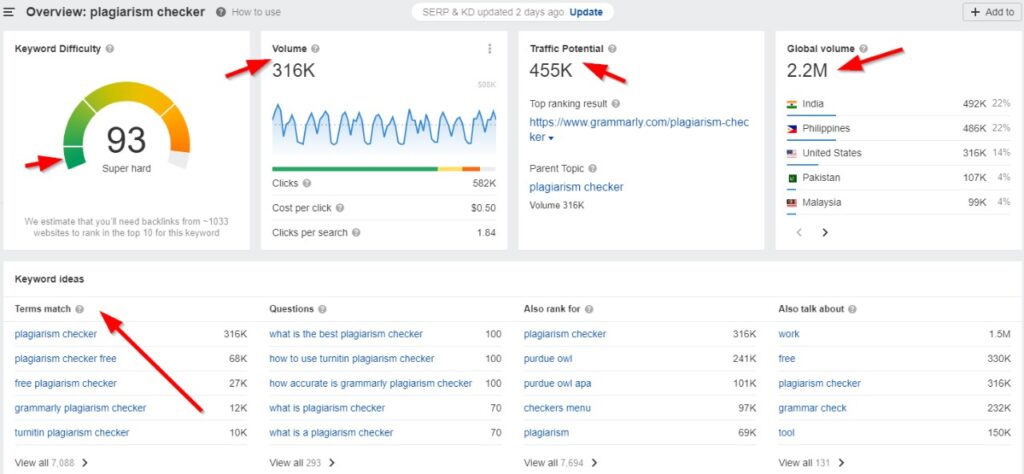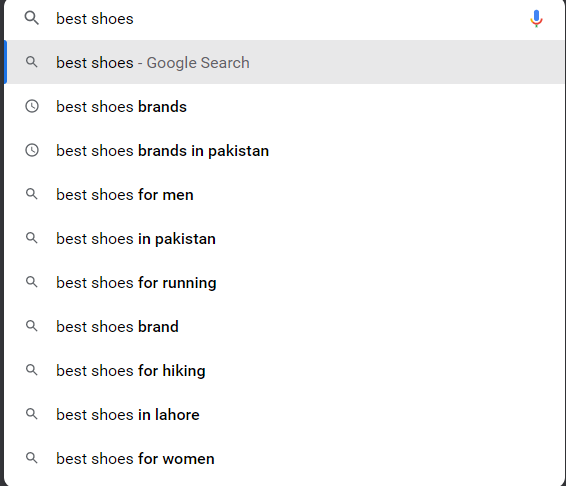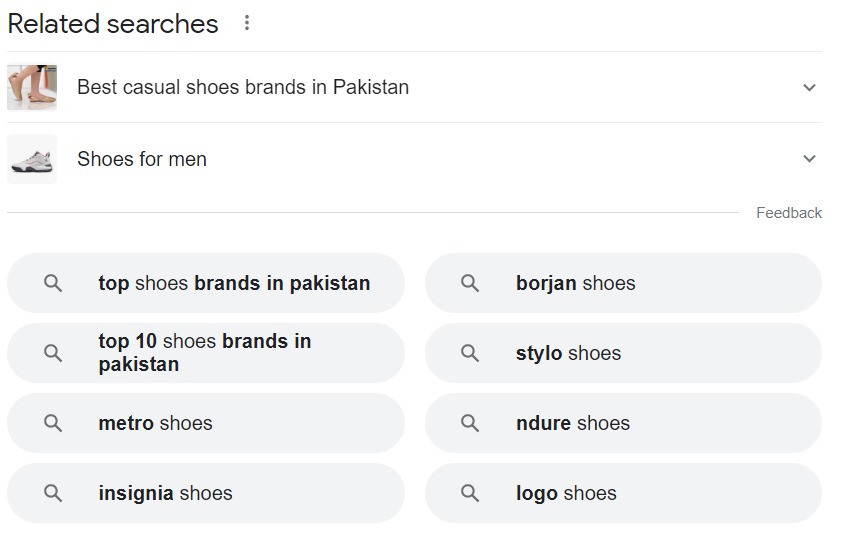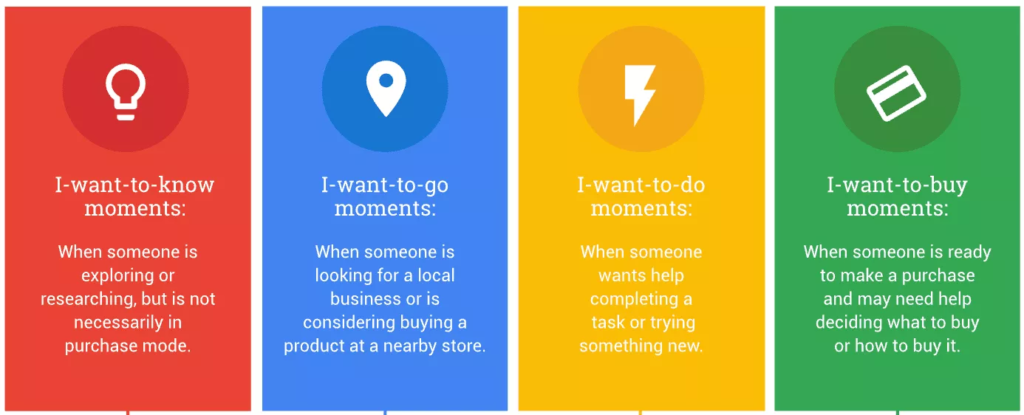How to Effectively Perform Keyword Research for Ecommerce
If you’re new to the world of e-commerce or digital marketing in general, you’ve probably heard of search engine optimization (SEO). Search engine optimization can be a deciding element in the future of your e-commerce website in a world where the majority of online traffic comes from a string of text entered into a search box.
Although SEO covers a wide range of strategies, its fundamental goal is to improve how well Google and other search engines understand the content and products that are offered on your e-commerce website. As a result, you become more visible because there is a greater likelihood that search engines will feature your website among the results when users are looking for the goods you provide.
Effectively Perform Keyword research is one of the fundamental strategies used in SEO. The art of SEO keyword research is to match your website’s and your marketing language to the language that your potential buyers are using to find the things you’re selling.
We’ll go over the fundamentals of keyword research for ecommerce in this article. The end goal is to create a list of relevant keywords that you can use to develop and optimize your website, write product descriptions, and create blog posts.
Why Is Keyword Research For Ecommerce Important?
The search engine must choose from hundreds of thousands of potential pages with few results to show each time someone conducts a search. The search engine algorithms will decide which matches are the finest and most pertinent for each individual search. To ensure that your site appears in the search results for the most pertinent keyword searches, it is crucial to choose your keywords wisely.

Ranking in the top spots on the first page of a search engine results page is just as significant as appearing on the first page for relevant search phrases. We learn that more than 58% of traffic goes to the top three search results.
Keyword research helps you:
- Analyze search demand to develop the best SEO plan possible.
- Make a list of words and phrases that are pertinent to your marketing objectives.
- Target high ROI keywords initially with your keyword investments.
- Fill in any keyword gaps in your store.
- Fill in any keyword gaps in your store.
In other words, the more visitors (and possible sales) you get, the closer you are to being at the top of Google Search for relevant terms. The difference in just a few positions can, in the long run, represent a sizable revenue loss depending on the search term and the number of searches conducted for that search term each month.
Ecommerce Keyword Research: The Basics
There are a few fundamental concepts you’ll encounter when conducting keyword research for your online store that are crucial to comprehend before you start.
These terms include:
Keywords
In the context of search engine optimization, a keyword is a specific word or phrase that serves as a condensed version of a page’s or website’s content. A webpage’s metadata includes keywords, which aid search engines in matching a page to the right search query.
Long-tail keywords
Simply put, keywords with three words or more are considered long-tail. Due to the fact that they target consumers who are further along in the buying cycle and hence have a better likelihood of converting, long-tail keywords are significant (hence the origin of their term).

A person who searches for “hair extensions” is probably just beginning their research process. A person who searches for “20-inch brown hair extensions price” is, however, probably further along in the purchasing process and much more likely to make a purchase. “High purchasing intent” or “high commercial intent” are the terms used to describe these keywords. A keyword is frequently given one of three search intents by SEO:
Navigational: when searchers are looking for a specific website
Informational: when searchers want to know or do something, like create a homemade recipe
Transactional: when a searcher wants to buy something
Search volume (average monthly searches)
Average monthly searches are the most common way to measure search volume. To clarify, this represents the total monthly searches for each specific search term (keyword). The best keywords to choose are those with the most searches. You and your store have a greater chance of generating more traffic and converting that traffic if you rank well for search terms with bigger search volumes.
Unfortunately, no one can agree on a magic figure that perfectly encapsulates the ideal search volume. For each site, the “correct” search volume will be defined differently.
Competition
There are other factors to take into account besides search volume. Equally significant, if not more so, is competition. It is pointless to attempt to rank for certain keywords for which there is no likelihood of success. The term “competition” describes how challenging it is to rank for a given keyword.

Your approach will ideally contain keywords with a high search volume and low competition. To unearth these gold nuggets, though, will take some perseverance, hard effort, and possibly a little luck.
How To Do Keyword Research For Ecommerce
1. Make a list of broad topics relevant to your business
Create a spreadsheet with broad categories or “buckets” for your keywords in this initial phase. Moreover, they might match up with other product categories. You might already cover some themes regularly if you blog frequently.
Keep this list brief and straightforward, with no more than 5–10 subjects. It may be beneficial to consider yourself a customer looking for your goods or services.
A website that sells natural and ecologically friendly goods could have general categories like:
- Healthy environment
- Natural Health
- Non-Toxic home cleaning
- Natural beauty
- Healthy cooking
- Natural pet health
2. Expand each topic with a list of phrases you think your customers use
Determine the words or expressions that your ideal consumer may use to search for information, goods, or services under each of your broad categories.
Look through your organic search traffic bucket to find keywords users are already using to find your website if you already have data from the website analytics software, such as Google Analytics or HubSpot’s Sources report.
This is an opportunity to generate ideas for data points that will help make your study more focused and fruitful, not as a final list of keywords.

Under the heading “Healthy environment,” you could list the following for the previously mentioned example of an environmentally friendly website:
- Compare air purifiers
- Best water filters
- Aroma diffuser
- Essential oil diffuser
- Non Toxic paint supplies
- Hypoallergenic pillows
- Natural ways to reduce allergies
- How to improve indoor air
- How to use sage
Make a list for each broad area, then enter it into your spreadsheet. Ask your coworkers or other employees for suggestions, especially if they deal with customers. They might have some really good ideas and insights.
3. Find related search terms
There are innovative ways to add keywords to your lists.
- You can find a list of similar search terms in bold at the bottom of the page after conducting a keyword phrase search in Google.
- Click on one of the related searches for further information, and then look at the list that Google provides at the bottom of the second page.
- Three free searches can be made each day on the website AnswerThePublic. It provides a list of words and phrases that people are looking for in relation to your subject.
- In order to find out what other pertinent terms people use, you can also enter your keyword phrase into Google’s Keyword Planner or one of the paid tools listed below.

4. Analyze the strength of your keywords
Using a paid keyword research or SEO tool, such as Keyword Planner, is the simplest approach to do the following step. Some of the more well-known ones are Ubersuggest, Ahrefs, Semrush, and Wordtracker. You can start with the free versions of Wordtracker and Ubersuggest.
When you study your keywords, you should search for the following.
- What exactly is the search term? Make sure your keyword phrase corresponds to the exact search term people are using.
- How many people are searching? Building your strategy on a keyword term that nobody uses won’t be very helpful. Look for the most popular search term.
- What degree of competition is there? The paid tools distinguish between the competition for paid advertisements and that for organic search.
- You want a bigger search volume with less competition in organic search. The sweet place is there.
- Look for similar terms that you might have overlooked and that have a lot of search volume but little organic search competition.
5. Determine how you rank in your industry
You should change your strategy to find less competitive long-tail keywords if you’re up against well-known brands that already dominate the first page of Google for the majority of the terms you’ve identified.
Your ideal search keywords should appear on the search engine results page (SERP). Refine your list with long-tail keywords if it’s full of reputable brands with greater influence and market share than your business now enjoys.
The only time this tactic won’t work is if your rivals haven’t been putting out high-quality content. Even if they spend more money marketing their brand, you might be able to outrank them if you know you can surpass their material in length, quality, and structure.
6. Verify search intent
Consumers who use Google to conduct searches are looking for something. There must be an answer for each question.
By entering your keyword phrase into a search engine, you can make sure you comprehend the intent of your clients. What pages now rank for that term, and what services do they provide?
If you try to sell to a buyer who is looking for information, you may gain a click, but the click will be short-lived, which may lower your rating. A customer will be pleased if you deliver a product page when they are prepared to buy.

Create a habit of checking keyword intent before developing content for you or your team, or make a note in your spreadsheet of the buyer’s intent for each search phrase.
Keyword research is the foundation of your SEO strategy
In addition to helping customers find you, keywords assist search engines in classifying your content. In a successful SEO plan, they are only one stage, though.
You must create valuable content around your keyword phrases in order for your blog posts and web pages to rank well. In other words, improve upon your rivals with each post. Make the response more valuable, comprehensive, and readable.
Additionally, each article’s design and on-page SEO are important considerations. Make sure your page is mobile-friendly and easy to scan.
Both humans and search engines use SEO. Choosing the right keywords is a crucial first step. Users that love and value the content on your website spend more time there, which tells Google that you are doing a good job.
Above all, Organic SEO takes time to develop. Although you may rank quickly for some keywords or phrases, the majority of businesses have a slow ascent in the SERPs. Keep at it, be patient, and have fun while doing your keyword research.
Ecommerce keyword research FAQ
How do you conduct keyword research for ecommerce?
- Determine the scope of your keywords.
- To succeed, find specialized keywords.
- Make a method for researching keywords.
- Create a topical map.
- The various content kinds are mapped.
- Create a calendar of materials.
What are the e-commerce keywords?
A keyword is a subject or notion that describes the subject matter of your webpage. In order to locate particular online information, people enter keywords into search engines.
Why is keyword research so crucial for content for e-commerce sites?
When conducting keyword research for your online store, you may better understand search demand and develop a highly effective SEO plan. It teaches you which key phrases to target for both organic and pay-per-click (PPC) search results, and it helps Google understand what your store is all about.
What does eCommerce SEO entail?
Ecommerce SEO entails making your online store search engine friendly. The objective is to rank your landing pages highly in search, depending on what visitors are looking for, whether they be product pages, homepages, blog posts, or category pages.
Summing it up!
In conclusion, researching keywords might be a little overwhelming. Make sure you’re using the right techniques to improve your site’s ranking naturally. Therefore, try adding quarterly and yearly reminders to your calendar as a best practice for keyword research.
Add new strategies and tools you haven’t used before for keyword research. Consider your keyword while analyzing website traffic and ranking, and do this frequently.
The aforementioned advice will unquestionably improve your organic search ranking and give your content more depth.







